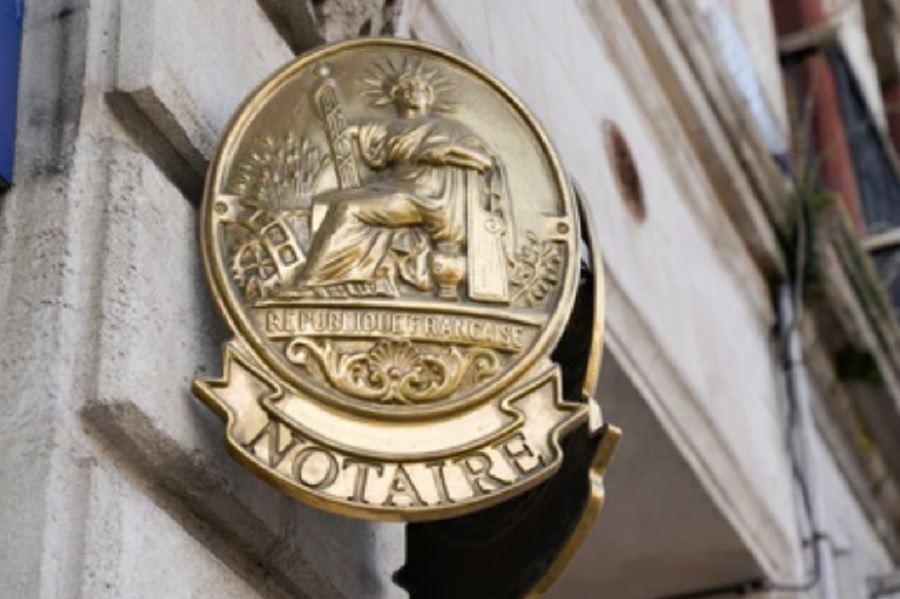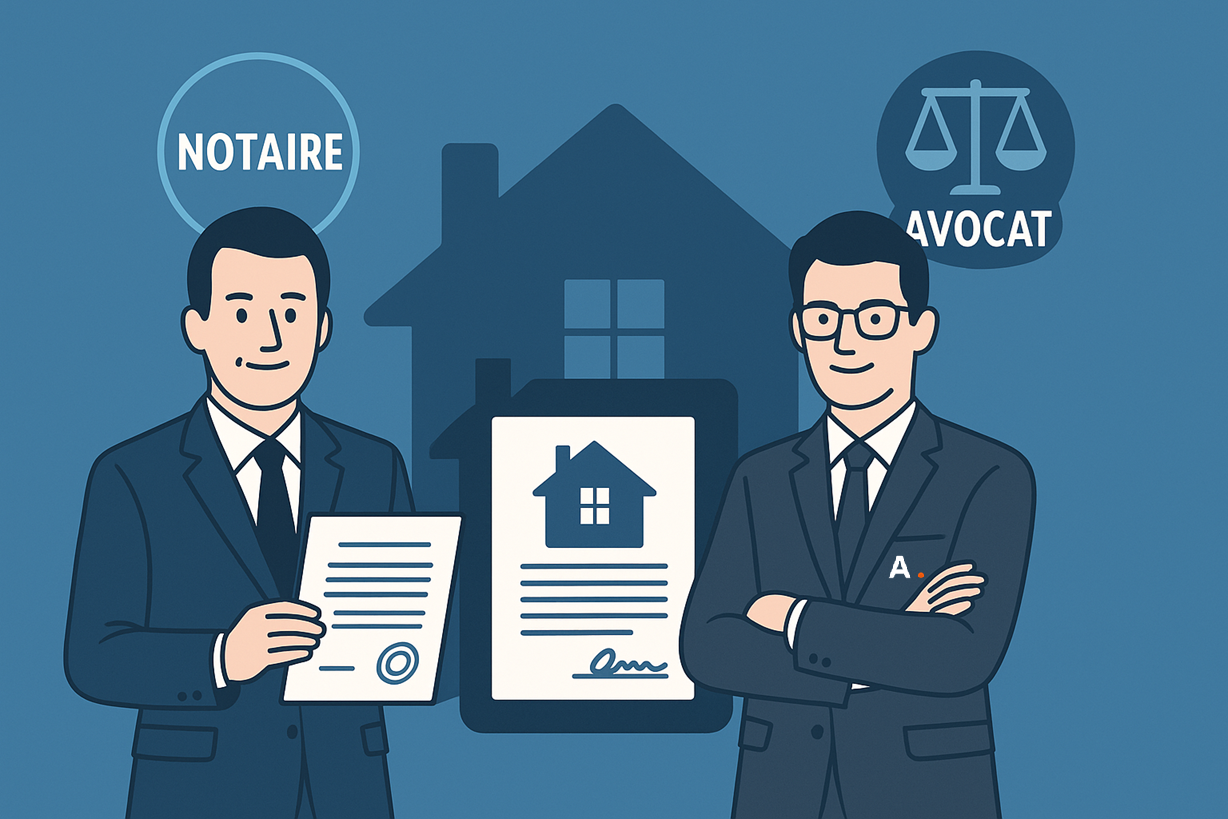The notary profession in France
A notary public or “Notaire” is a legal professional who is authorized to perform various legal acts, such as certifying and witnessing signatures, taking oaths and affirmations, and preparing and certifying legal documents. In France, notaries play a particularly important role in real estate transactions, as they are responsible for ensuring that all legal requirements are met, and for overseeing the transfer of property ownership from one party to another.


The notary profession in France:
The notary profession is regulated by law. Notaries in France are appointed by the government and are responsible for ensuring the legality of various acts and transactions.
The main functions of notaries in France include drafting and certifying legal documents, verifying identities, and ensuring the compliance of various legal and tax requirements.
Notaries in France are particularly important in real estate transactions, as they are responsible for overseeing the transfer of property ownership from one party to another. The notary’s role in a real estate transaction in France includes verifying the legal ownership of the property, ensuring that all taxes and fees are paid, drafting the sale agreement, and overseeing the transfer of ownership.
Notaries in France are also responsible for providing legal advice to their clients and for ensuring that all legal requirements are met in a given transaction. In addition to their legal duties, notaries in France are also responsible for maintaining public archives and records. The notary profession in France is highly regulated and requires extensive training and education. To become a notary in France, individuals must complete a rigorous course of study, pass a series of examinations, and undergo a period of apprenticeship. Notaries in France are organized into regional associations, and the profession is overseen by the Chambre des notaires de Paris, the main regulatory body for the notary profession in France. The fees charged by notaries in France are regulated by the government and are based on a percentage of the transaction value.
While notaries in France are not required to be lawyers, many have a background in law.

The differences between the notary profession and the mandataire lawyer profession in real estate
A “mandataire” lawyer or “real estate lawyer” is a lawyer who represents their clients interests in a legal transaction, such as a real estate transaction, by acting as their agent. In this role, the mandataire lawyer has the power to act on behalf of their client and make decisions on their behalf.
One of the main advantages of having a “real estae lawyer” or “mandataire lawyer” in a real estate transaction is that they can provide legal and fiscal advice and assistance throughout the entire process. They represent thier client interest, attorneys can help their clients negotiate the terms of the sale, review and draft contracts, and ensure that all legal requirements are met.
In contrast, while notaries in France also play a key role in real estate transactions, their role is more focused on ensuring the legality of the transaction rather than providing legal advice to the parties involved.
Notaries in France are responsible for verifying the legal ownership of the property, ensuring that all taxes and fees are paid, drafting the sale agreement, and overseeing the transfer of ownership.
While notaries can provide guidance on legal matters related to the transaction, they cannot provide legal advice or represent their clients in a legal capacity. This is where a mandataire lawyer can bring added value to the transaction, by providing legal representation and advocacy for their client.
In summary, a “real estate attorney” or “mandataire lawyer” can provide legal advice and representation to their client in a real estate transaction, while a notary’s role is focused on ensuring the legality of the transaction. While both professions are important in real estate transactions in France, their roles and responsibilities differ.

The complementarities between the notary profession and the mandataire lawyer profession in real estate
The notary profession and the mandataire lawyer profession both play important roles in real estate transactions in France. While their roles and responsibilities may differ, they are often complementary to each other, and can work together to ensure a smooth and successful transaction.
Complementarities between the notary profession and the mandataire lawyer profession in real estate:
Legal expertise: Both notaries and mandataire lawyers bring legal expertise to real estate transactions, but in different areas. Notaries specialize in ensuring the legality of the transaction and verifying ownership of the property, while mandataire lawyers can provide legal advice and representation throughout the entire process.
Contract drafting: While notaries are responsible for drafting the sale agreement, mandataire lawyers can review and negotiate the terms of the agreement to ensure that their client’s interests are protected.
Conflict resolution: In the event of a dispute or conflict during the transaction, mandataire lawyers can represent their clients in legal proceedings, while notaries can act as mediators to help resolve the issue.
Risk management: Both notaries and mandataire lawyers can help manage the risks associated with real estate transactions, by identifying potential legal issues and providing guidance on how to mitigate them.
Client representation: While notaries are impartial and represent both parties in the transaction, mandataire lawyers represent only their client’s interests. This can be beneficial for clients who want legal representation and advocacy throughout the transaction.
Overall, the complementarities between the notary profession and the mandataire lawyer profession can help ensure that real estate transactions in France are legal, fair, and successful for all parties involved.
About the Author :
Business lawyers, bilingual, specialized in acquisition law; Benoit Lafourcade is co-founder of Delcade lawyers & solicitors and founder of FRELA; registered as agents in personal and professional real estate transactions. Member of AAMTI (main association of French lawyers and agents).
FRELA : French Real Estate Lawyer Agency, specializing in acquisition law to secure real estate and business transactions in France.
Paris, 19 Rue du Colisee, 75008 Paris
Bordeaux, 78 Cours de Verdun, 33000 Bordeaux
Lille, 40 Theater Square, 59800 Lille

This article is provided for general information only and may not reflect the most recent legal or tax developments. It does not constitute legal advice. Please contact us for personalised guidance before making any decision.



